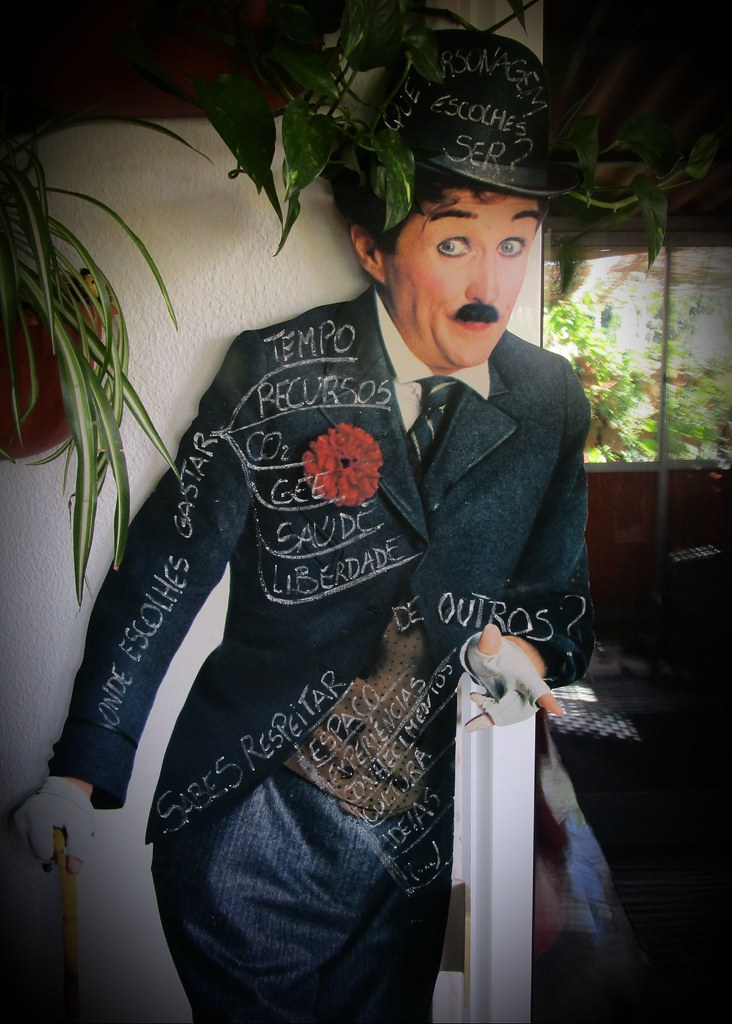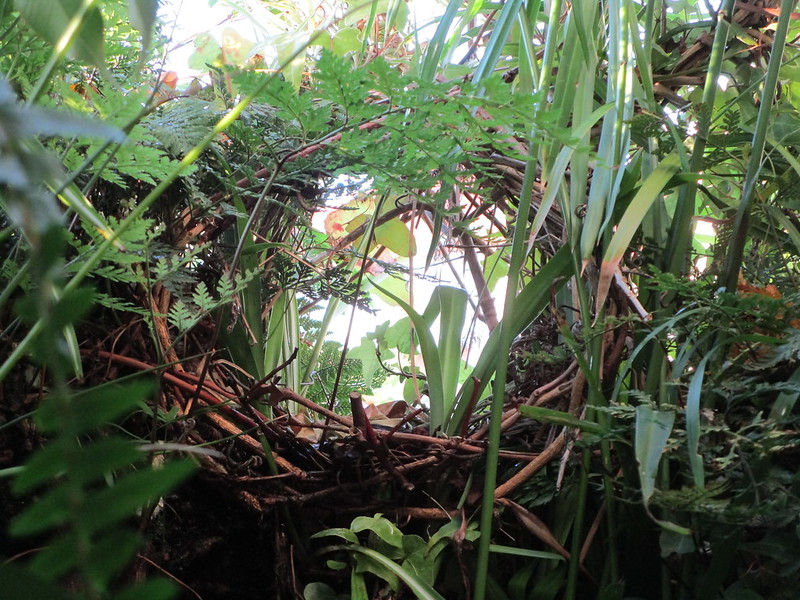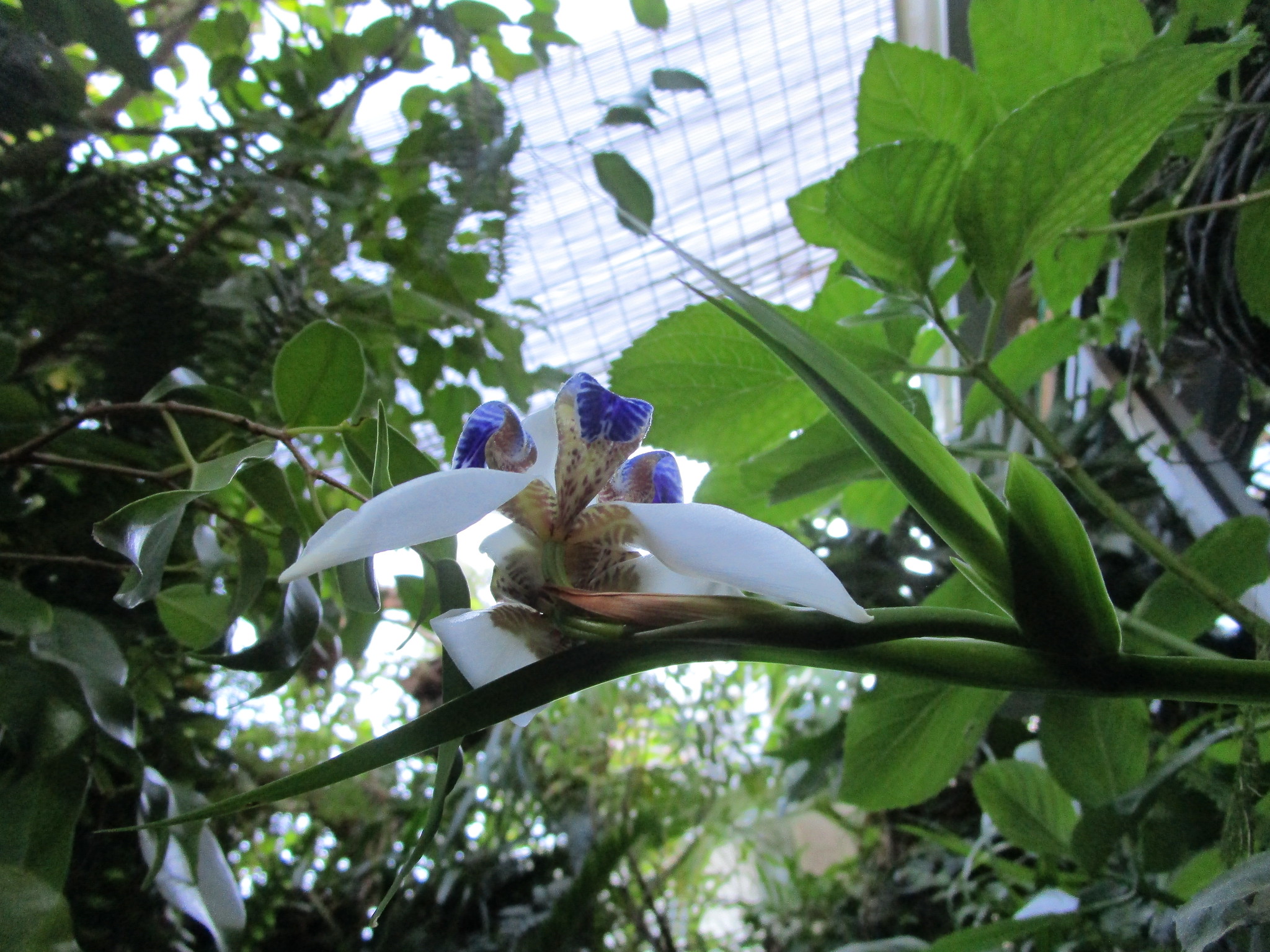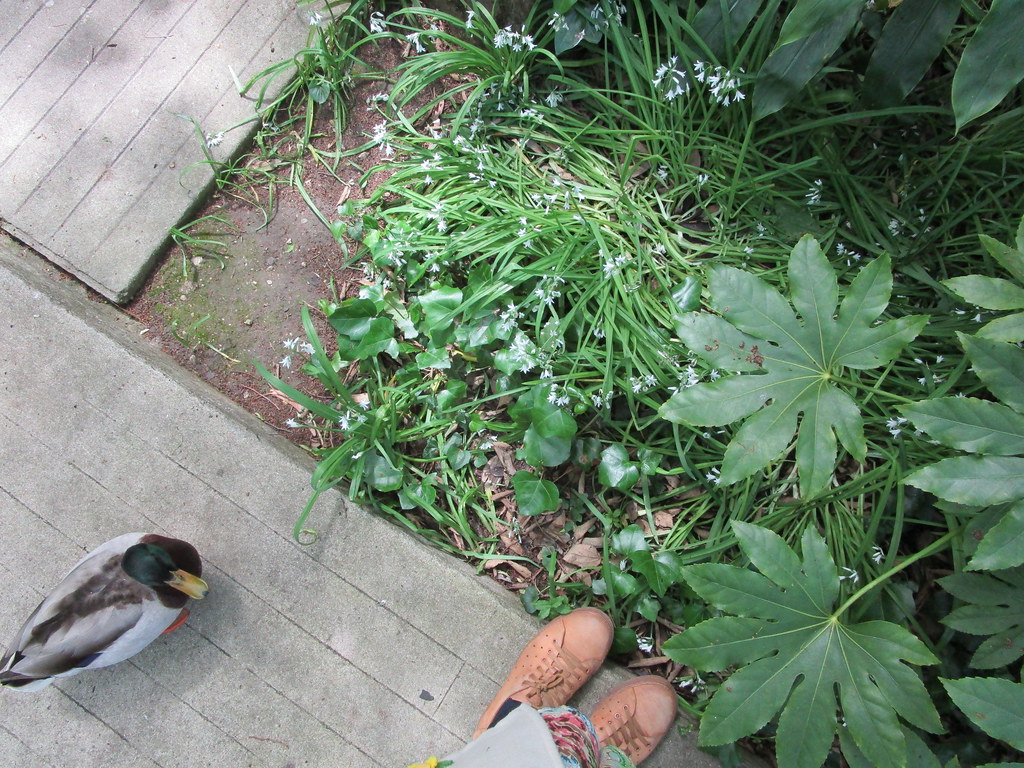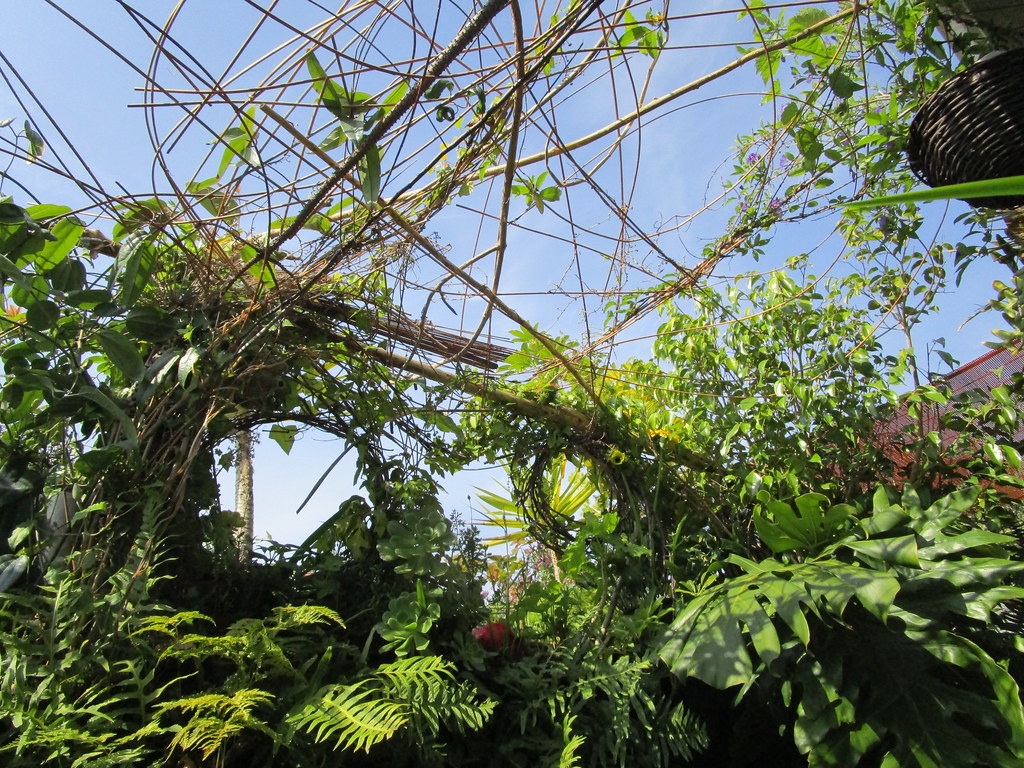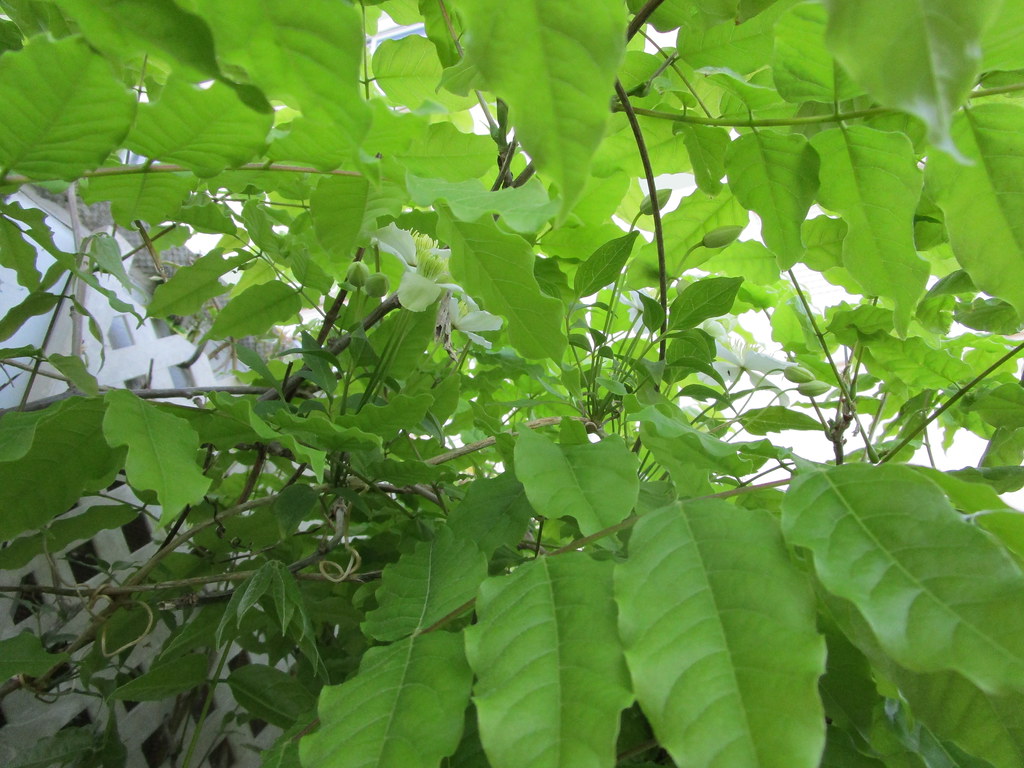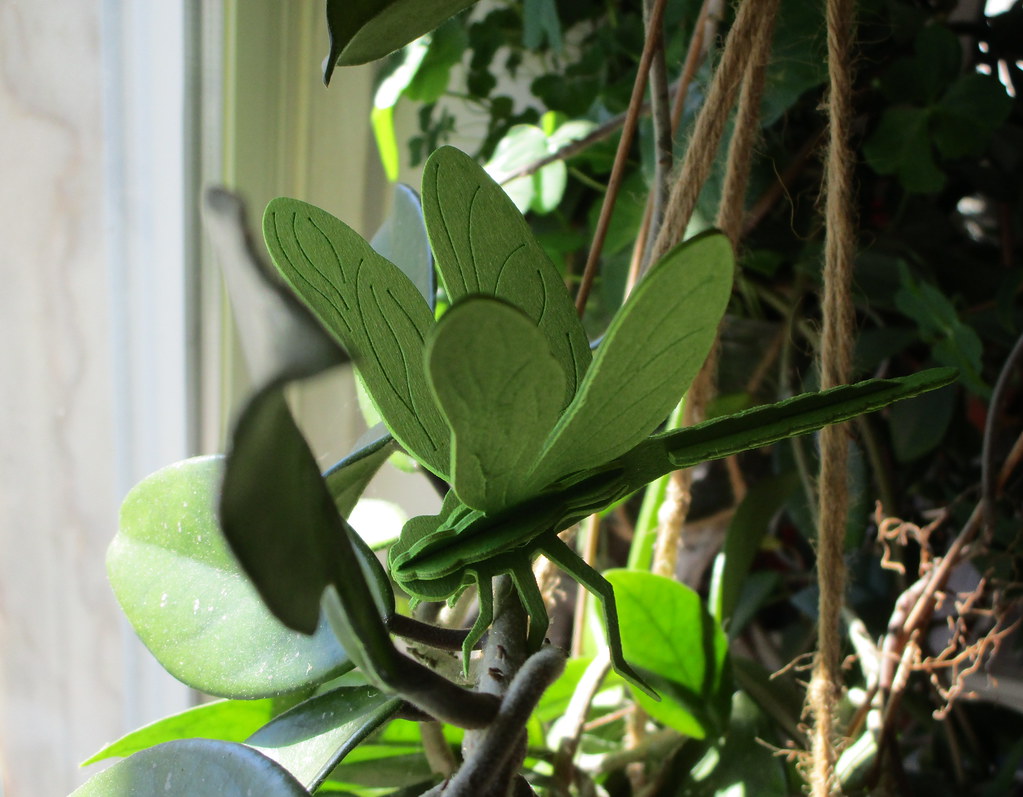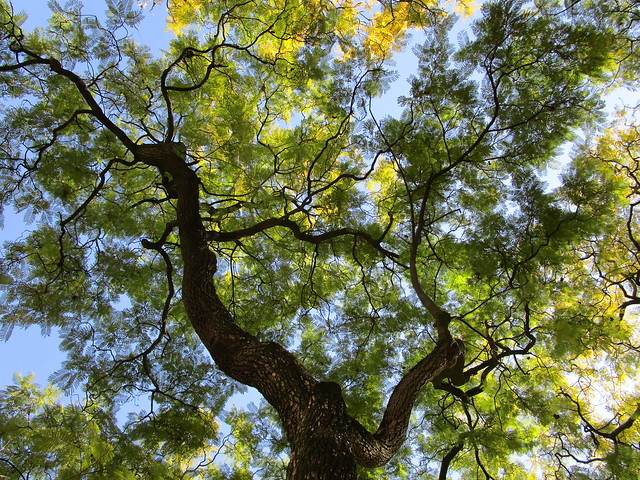"In narrative terms, the Anthropocene began with widespread colonialism and slavery: it is a story of how people treat the environment and how people treat each other." Simon L. Lewis and Mark A. Maslin (2018). The Human planet: how we created the Anthropocene. A Pelican book. Image by Monica Pinheiro, license CC BY-NC-SA (CC).

"More than conversation at the interface, it is creative assemblages like these that explore and elaborate the particular dynamic capacities that digital media afford and the ways that through them humans and machines can perform interesting new effects (...) in uniquely particular ways." Lucy Suchman (2009). Human-machine reconfigurations: plans and situated actions.
Oct 19, 2019
Sep 29, 2019
September
"One critical aspect of our environmental impact results from what we do with our time." (Lewis and Mark, 2018). Where do you choose to spend your time / resources / carbon dioxide / greenhouse gases / health / liberty / ...life?
Reference: Simon L. Lewis and Mark A. Maslin (2018). The Human planet: how we created the Anthropocene. A Pelican book. Image by Monica Pinheiro, license CC BY-NC-SA (CC).
Reference: Simon L. Lewis and Mark A. Maslin (2018). The Human planet: how we created the Anthropocene. A Pelican book. Image by Monica Pinheiro, license CC BY-NC-SA (CC).
Sep 23, 2019
September
"If restoration is not possible for a disturbed ecosystem in an irreversibly changed environment, then rewilding is the adaptive tactic for regaining and maintaining functionality, perhaps with introduced components. (...) the rise of the rewilding concept is a sign that new approaches are urgently needed to conserve biodiversity and maintain ecosystem services under increasingly unpredictable global conditions, as traditional approaches on their own are demonstrably unfit for the challenges ahead." in Rewilding needs a conceptual framework. Is the adaptive cycle the answer? Image by Monica Pinheiro, license CC BY-NC-SA (CC).
by
Monica Pinheiro
0
comments
 Labels:
biodiversity,
climate change,
concepts,
Equinox,
rewilding,
unpredictability
Labels:
biodiversity,
climate change,
concepts,
Equinox,
rewilding,
unpredictability
Sep 12, 2019
Territory of Life
"No matter how small, if you attend to the space you control with love you become part of the solution, not the problem! What can you plant? How can you tend it to encourage greater diversity of animal life? Who else can you invite to contribute? Can you grow a local network of flourishers? Vision the world you wish to create for yourself and the generations to come. Reinforce that vision every day and let it lead you! Make it a heart project – something that you do to enjoy the flourishing for its own sake. Invite others to join you. Enjoy the companionship of the other species and people that you share your space with, watch them grow and get to know them. Attend to the small details, enjoy the tiny as well as the large and flamboyant. Maybe your network can become a ‘Territory of Life’?" Flourishing Diversity: Learning from Indigenous Wisdom Traditions. Image by Monica Pinheiro, license CC BY-NC-SA (CC).
by
Monica Pinheiro
0
comments
 Labels:
biodiversity,
climate change,
diversity,
flourisher,
report,
resilience
Labels:
biodiversity,
climate change,
diversity,
flourisher,
report,
resilience
Sep 10, 2019
September
"(...) selective tree breeding to enhance genetic diversity in forests and protect endangered genetic resources increases disease resistance, drought tolerance, and the ability to cope with more frequent and more destructive storms and fires; management practices that focus on mixtures instead of monocultures make forests more resilient, enhance energy and resource efficiency, protect forestry related jobs, increase competitiveness and expand business opportunities within the bio-based
industries;" in European Union LIFE Programm Publications (2019). Ready, steady, green! LIFE helps farming and forestry adapt to climate change. Image by Monica Pinheiro, license CC BY-NC-SA (CC).
by
Monica Pinheiro
0
comments
 Labels:
biodiversity,
books,
efficiency,
energy,
EU,
forest,
management,
resilience,
sintra
Labels:
biodiversity,
books,
efficiency,
energy,
EU,
forest,
management,
resilience,
sintra
Aug 26, 2019
Agosto
"[M]elhorar o efeito estético da vegetação natural (...) na base das paredes, juntas e áreas" que favoreçam "espécies com características desejáveis" quer por serem rasteiras, resilientes ou "pela beleza das suas cores, as quais por sua vez também abafarão as espécies de características indesejadas." Quercus - Associação Nacional de Conservação da Natureza: Autarquias sem Glifosato/Herbicidas. Image by Monica Pinheiro, license CC BY-NC-SA (CC)
Aug 19, 2019
Improve
"(...) any knowledge we have is dependent on the technology, circumstances, situations, and actions from which it was constructed. (...) knowing, doing, feeling, and making sense are inseparable. Pragmatism is a practical, consequential philosophy, a practice that is concerned with imagining and enriching as much as understanding. The test it sets itself is to improve things."John McCarthy & Peter Wright, 2004. Technology as experience. London, MIT Press. Image by Monica Pinheiro, license CC BY-NC-SA (CC)
by
Monica Pinheiro
0
comments
 Labels:
books,
circumstances,
experience,
improvement,
knowledge,
layers of dependency,
Nature,
practice,
pragmatism,
technology
Labels:
books,
circumstances,
experience,
improvement,
knowledge,
layers of dependency,
Nature,
practice,
pragmatism,
technology
Aug 3, 2019
Painting with Nature
"(...) it was nature herself who created the shapes and patterns (...) without the need for pruning shears; branches feathered down or twisted towards the sun; some trees grew so bushy that they were green barriers, while others were as delicate as ornamental lattice-work against the sky. (...) It was like painting with trees. The different hues of leaves, Miller said, should be like 'Lights and Shades in Pictures', while Collison described the way in which Petre used a tree's foliage, its texture, bark, height and shape, as his 'living pencils'." Andrea Wulf, 2009. The Brother Gardeners. Image by Monica Pinheiro, license CC BY-NC-SA (CC)
Jul 20, 2019
Jul 18, 2019
July
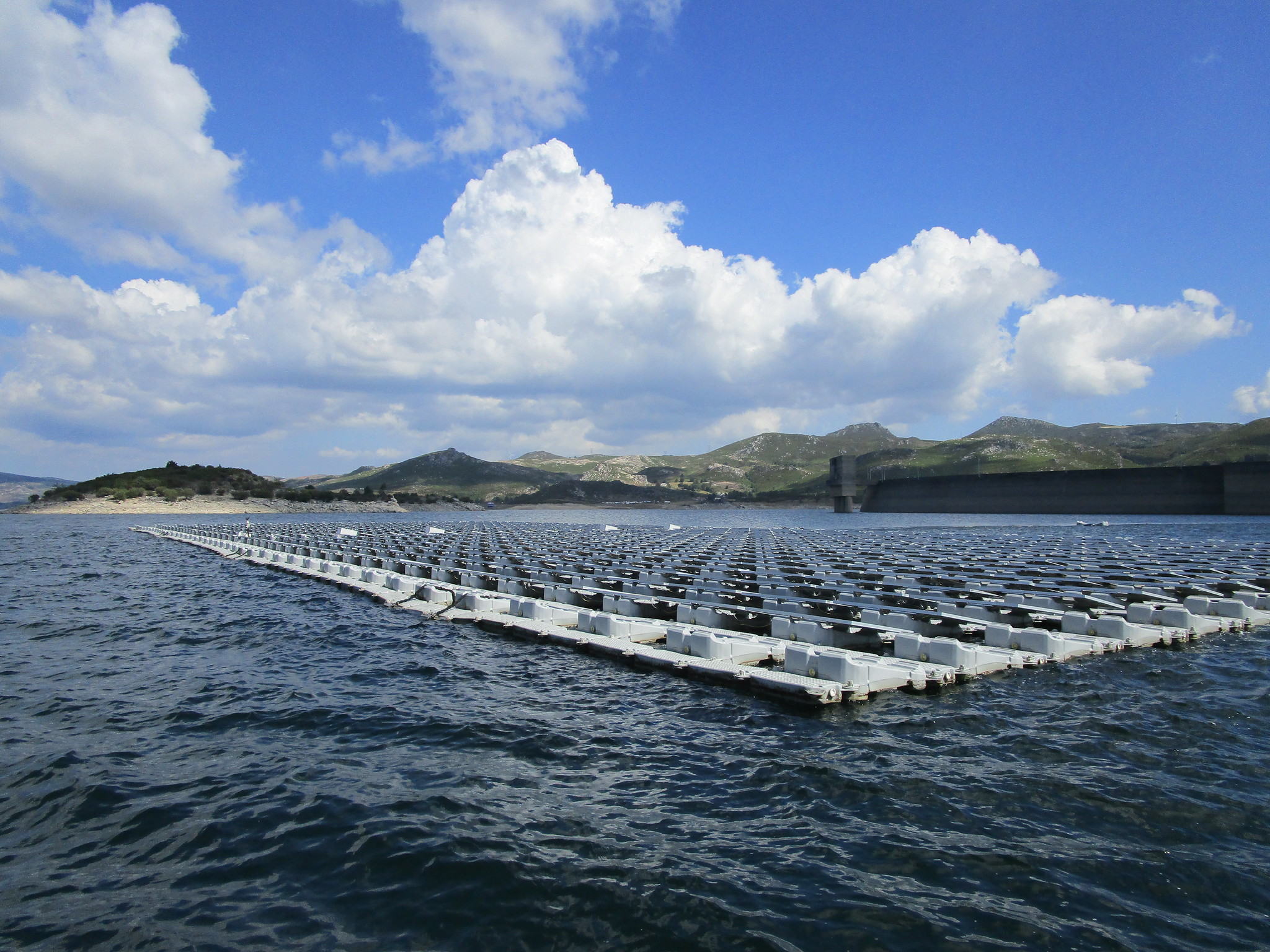
"Infrastructure is both relational and ecological—it means different things to different groups and it is part of the balance of action, tools, and the built environment, inseparable from them. (...) to understand the interplay of online and offline behavior (...) include studying the design of infrastructure, understanding the paradoxes of infrastructure as both transparent and opaque, including invisible work in the ecological analysis, and pinpointing the epistemological status of indicators." Susan Leigh Star, 1999. The Ethnography of Infrastructure. American Behavioral Scientists, 43(3), pp 377-391. Image by Monica Pinheiro, license CC BY-NC-SA (CC)
Jul 13, 2019
July
There is a small forest in the city "(...) that has a shade of green for every possible felicitation of light;" Zadie Smith, 2006. On Beauty. Penguin Books. Image by Monica Pinheiro, license CC BY-NC-SA (CC)
Jun 29, 2019
June

“An organism tends to act upon the world in a mediated way. It actively converts (sensory) data into information and then constructively processes this information to manage its interactions with the world. (…) In humans, it evolves the unique capacity to gather, store, and retrieve, exchange, integrate, and update, use and indeed misuse semantic information acquired by other people, including past generations.” Luciano Floridi, 2010. Information: a very short introduction. Oxford University Press.
Image by Monica Pinheiro, license CC BY-NC-SA (CC)
Jun 26, 2019
June
This plant (agapanthus) is producing flowers with more than the habitual 6 petals. In the photo you can see a flower with 10 petals. Other flowers with 8 and the usual 6. Image by Monica Pinheiro, license CC BY-NC-SA (CC)
Jun 21, 2019
Jun 19, 2019
June
"Without me having to lift a finger, or calling for help, I know that the images belong to me, the owner of the body within which that mind is being fabricated, as I write, the owner of the living organism that I inhabit." Antonio Damasio, 2019. The strange order of things. Vintage Books Edition. Image by Monica Pinheiro, license CC BY-NC-SA (CC)
Jun 13, 2019
Lightning speed
"(...) when workers in dirty sectors are offered good jobs in clean sectors (...), and are enlisted as active participants in a green transition, then progress can happen at lightning speed." Naomi Klein, 2015. This Changes Everything. Penguin books. Image by Monica Pinheiro, license CC BY-NC-SA (CC)
by
Monica Pinheiro
1 comments
 Labels:
books,
climate change,
energy,
greenjobs,
participants,
transitions,
work changes,
workers
Labels:
books,
climate change,
energy,
greenjobs,
participants,
transitions,
work changes,
workers
May 26, 2019
Behaviours
"To the extent people prioritize values and goals such as achievement, money, power, status and image, they tend to hold more negative attitudes towards the environment, are less likely to engage in positive environmental behaviours, and are more likely to use natural resources unsustainably." Tim Cromptron & Tim Kasser, 2009. Meeting Environmental Challenges: The Role of Human Identity. Image by Monica Pinheiro, license CC BY-NC-SA (CC)
May 15, 2019
Flourishing
«Homeostasis refers to the fundamental set of operations at the core of life, (...) is the powerful, unthought, unspoken imperative, whose discharge implies, for every living organism, small or large, nothing less than enduring and prevailing. (...) The part (...) that concerns "enduring" (...) produces survival and is taken for granted without any specific reference or reverence whenever the evolution of any organism or species is considered. The part of homeostasis that concerns "prevailing" (...) ensures that life is regulated within a range that is not just compatible with survival but also conductive to flourishing, to a projection of life into the future of an organism or a species.» Antonio Damasio, 2019. The Strange Order of Things. Vintage Books. Image by Monica Pinheiro, license CC BY-NC-SA (CC)
by
Monica Pinheiro
0
comments
 Labels:
1 day flower,
bloom,
books,
define,
enduring,
garden,
homeostasis,
life,
May,
prevailing
Labels:
1 day flower,
bloom,
books,
define,
enduring,
garden,
homeostasis,
life,
May,
prevailing
May 10, 2019
May
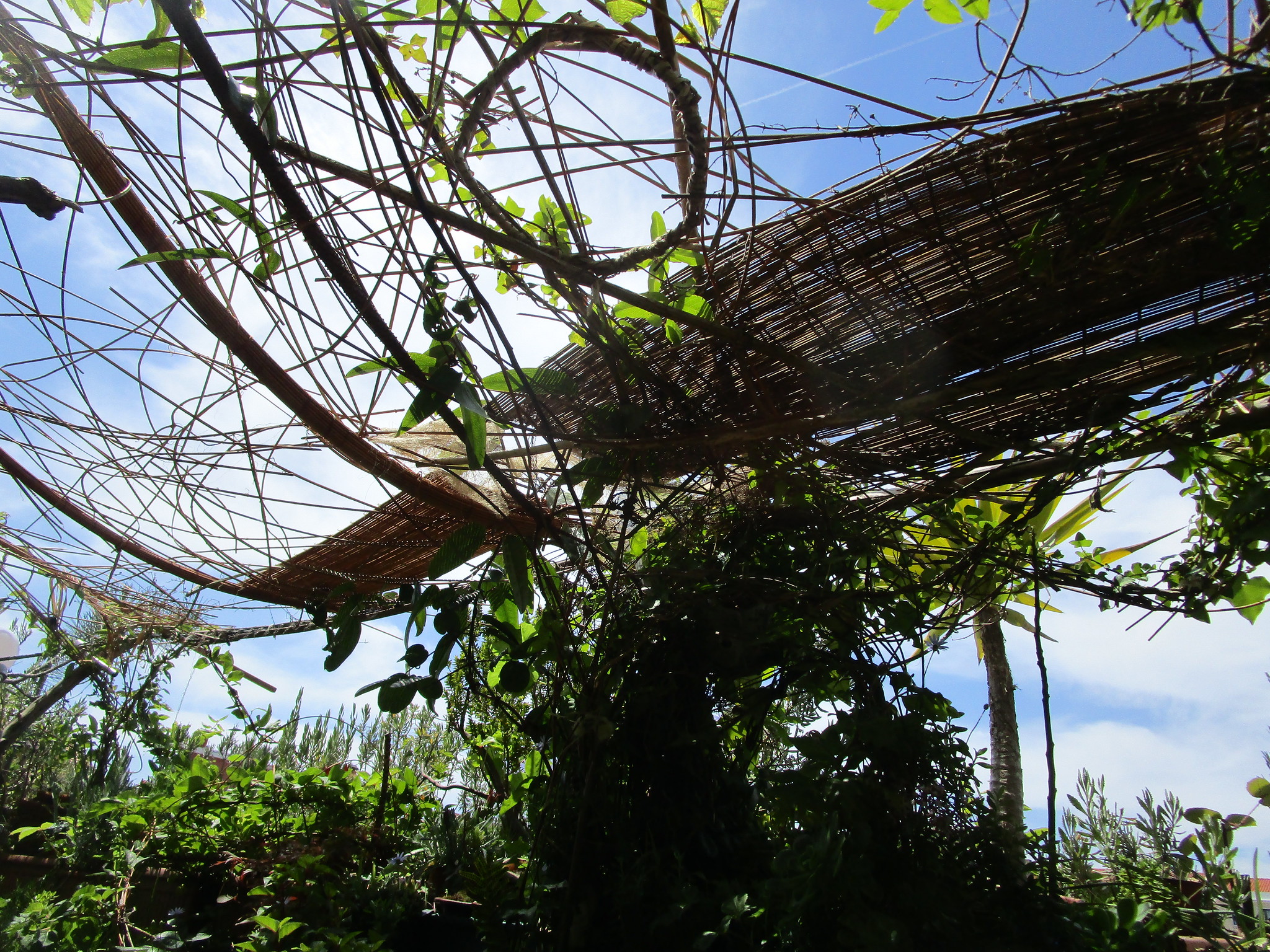
"Cyberstalking is the use of the Internet or other electronic means to stalk or harass an individual, group, or organization. Cyberstalking is often accompanied by realtime or offline stalking. (...) motivated by a desire to control, intimidate or influence a victim. A stalker may be an online stranger or a person whom the target knows. (...)
Cyberstalking is a technologically-based "attack" on one person who has been targeted specifically for that attack for reasons of anger, revenge or control.
(...) Mental profiling of digital criminals has identified psychological and social factors that motivate stalkers as: envy; pathological obsession (professional or sexual); unemployment or failure with own job or life; intention to intimidate and cause others to feel inferior; the stalker is delusional and believes he/she "knows" the target; the stalker wants to instill fear in a person to justify his/her status; belief they can get away with it (anonymity); intimidation for financial advantage or business competition; revenge over perceived or imagined rejection.
(...)
the general profile of the harasser is cold, with little or no respect for others. The stalker is a predator who can wait patiently until vulnerable victims appear, such as women or children, or may enjoy pursuing a particular person, whether personally familiar to them or unknownn" Wikipedia: cyberstalking. Image by Monica Pinheiro, license CC BY-NC-SA (CC)
2021 11 23 Note: Em PT, ver 20 anos de Convenção sobre o cibercrime.
by
Monica Pinheiro
0
comments
 Labels:
cyberstalking,
define,
invisible crimes,
perpetrators,
profile,
stalking,
technology readiness
Labels:
cyberstalking,
define,
invisible crimes,
perpetrators,
profile,
stalking,
technology readiness
May 6, 2019
May

"Focus on enjoying your dayly rituals, using them as tools to enter a state of flow. Don't worry about the outcome - it will come naturally. Happiness is in the doing, not in the result." Héctor Garcia and Francesc Miralles, 2017. Ikigai. Penguin. Image by Monica Pinheiro, license CC BY-NC-SA (CC)
May 5, 2019
mother nature
Image by Monica Pinheiro, license CC BY-NC-SA (CC)
Apr 12, 2019
Apr 11, 2019
April
Mon'Ami. (Bosques na cidade / Small forests in the city). Image by Monica Pinheiro, license CC BY-NC-SA (CC)
Apr 9, 2019
Apr 2, 2019
April
 |
| Image by Monica Pinheiro, license CC BY-NC-SA (CC) |
Mar 31, 2019
March
"When one becomes a child of nature, one is encompassed by a natural beauty that only nature can give. The more one returns to the bosom of nature, the more intense that beauty becomes." (Soetso Yanagi, 2018. The Beauty of Everyday Things. Penguin Classics. Image by Monica Pinheiro, license CC BY-NC-SA (CC)
March
"There is no linear increase in fluidity without extensive systems of immobility." Elliott & Urry, 2010. Mobile Lives. Image by Monica Pinheiro, license CC BY-NC-SA (CC)
by
Monica Pinheiro
0
comments
 Labels:
books,
fluidity,
immobilities,
infrastructure,
mobility,
platforms
Labels:
books,
fluidity,
immobilities,
infrastructure,
mobility,
platforms
Mar 29, 2019
Mar 20, 2019
March
"This is the third in a series of reports on the circular economy in support of the framing, implementation and evaluation of European circular economy policy from an environmental perspective. The two previous reports applied a systemic approach to framing a circular economy and to the products within it. This report on the bioeconomy addresses circularity aspects of bio-based products and the sustainable use of renewable natural resources." The circular economy and the bioeconomy — Partners in sustainability. Image by Monica Pinheiro, license CC BY-NC-SA (CC)
Mar 4, 2019
Feb 6, 2019
Jan 26, 2019
January
"(...) the feel of the stone beneath my feet, the colour and the smell of the sea, the caress of the breeze on my cheek, the texture of the air against my skin. I breathed deeply, as if inhaling the world anew" Lily Prior, 2001. La Cucina.
Image by Monica Pinheiro, license CC BY-NC-SA (CC)
Jan 14, 2019
Jan 2, 2019
January
"I planted seeds in a beautiful garden that I will never see and they will become tall trees. I left some love and fantasies. This is my legacy. Dream it all for me." Rise up, wise up, eyes up. Ibeyi, 2018. Image by Monica Pinheiro, license CC BY-NC-SA (CC)
by
Monica Pinheiro
0
comments
 Labels:
blue jacaranda,
Campo Pequeno,
gardens,
jacaranda,
Jacaranda mimosifolia,
january,
Lisbon
Labels:
blue jacaranda,
Campo Pequeno,
gardens,
jacaranda,
Jacaranda mimosifolia,
january,
Lisbon
Dec 25, 2018
Biodiversity-rich areas
"Urban Green Infrastructure (UGI) refers to the strategically managed network of urban green spaces and natural and semi-natural ecosystems situated within the boundary of an urban ecosystem. These high-quality, biodiversity-rich areas can help make cities more sustainable and contribute to solve many challenges, such as air pollution, noise, climate change impacts, heat waves, floods and public health concerns. As cities grow and develop, it is vital to improve the availability, quality and accessibility of UGI." MAES Joachim, ZULIAN Grazia, GUENTHER Susann,THIJSSEN Martijn, RAYNAL Julie, 2019. Enhancing Resilience Of Urban Ecosystems through Green Infrastructure (EnRoute). Image by Monica Pinheiro, license CC BY-NC-SA (CC)
Subscribe to:
Comments (Atom)

